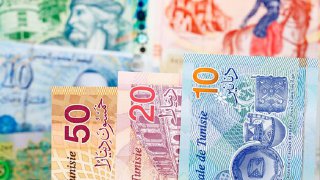The Tunisian cabinet approved a new draft law to develop the foreign exchange system to facilitate international financial and commercial transactions.
The Tunisian government says that it seeks through this law to meet Tunisian companies that have called for the reform of financial laws, considering, in a statement, that the project constitutes a “legislative revolution and a historic shift” within the framework of financial laws in Tunisia, at a time when some companies complained of ambiguity in some of the procedures stipulated by the law.
The law has not yet entered into force and needs to be approved by the House of Representatives.
According to the new draft law, investors need the approval of the central bank to obtain hard currency for their foreign transactions, or to obtain lines of credit to import goods, as the central bank issues the approval separately for each case.
The statement considered that the draft law aims to improve the business and investment climate, improve competitiveness, and raise the level of exports, as Tunisian banks suffer from the inability to issue credit cards to Tunisians working abroad, and foreigners also face restrictions on making international financial transfers unless they are registered as an offshore entity to benefit from banking privileges.
The government expects the draft law to achieve gradual liberalization of financial exchanges to promote economic growth, and also aspires to resolve the issues faced by Tunisians, residents, non-residents, and foreigners traveling in the possession of currency and opening accounts in foreign currency, as the current Tunisian law criminalizes the possession of foreign currency without proving its source, and also prohibits Tunisian citizens from transferring tourism and travel funds of more than 6,000 dinars ($1,941) annually.
Tunisia has been reeling from a worsening economic situation since the overthrow of President Zine El Abidine Ben Ali in 2011, and the central bank is trying to limit the ability to hold hard currency to stem the dinar’s decline.
Tunisia: The Vatican can influence to end the genocide in Palestinian territories
